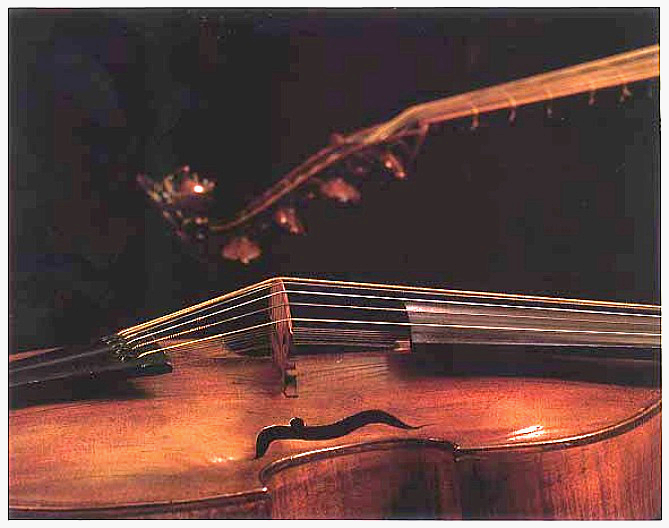written by Stephanie Shockley
Matthew 23:1-12
I was a member of the junior high newspaper staff. One day, I was sent to write a story about the high school orchestra. I sat in on a rehearsal, and was captivated. I had played the violin elementary school, but had given it up before 7th grade. The violin had not exactly been a success; I rarely practiced, and nobody was impressed with my efforts.
As I sat listening to the high school orchestra, reporter’s notebook in hand, a wave of regret about quitting violin washed over me.
By the time I left that afternoon, I had been given permission to play viola in 9th grade (not violin – they had too many already) and a school instrument that I could borrow, free of charge.
My parents, who remembered well my unwillingness to practice, were not enthusiastic about my plan to play viola. But they let me do it anyway. In hindsight, I’m sure they thought it would be a short-lived experiment.
I never did practice as much as I should have. I was truly terrible at the viola. I was the last chair in the viola section – the worst viola player in the orchestra. Sometimes, during a concert, when the music was too fast, or too hard, I’d move the bow across the strings as lightly as possible so that nobody would hear my mistakes.
Over time, I learned to sight read music, and I appreciated the camaraderie that came with being part of the orchestra. At the end of senior year, I “lettered” in orchestra. Was that letter just for participating? Yes, and I knew that. But it meant a lot to me – it represented hard won lessons about humility and endurance.
Occasionally I see a meme posted on social media that says something like “be brave enough to be terrible at something new.” This always catches my attention, because it feels like it’s directed right at me. I’m not eager to repeat the “viola experiment.” I like feeling competent. I like that feeling of having mastered something. And I don’t like the frustration, and the awkwardness, and the humility required not once, but over and over again, in the process of learning something new.
Most of us want other people to think we’re competent – that we’ve “got it together.” We don’t want to look confused, or unskilled, or silly in front of others. We like to show off what we know. We like to impress people.
Sometimes we forget why we develop skills and knowledge in the first place. Rather than putting our expertise and experience to good use, we become focused on bragging about what we know and what we can do, and obsessed with what others think of us. Suddenly, our knowledge, skills and talents no longer have value to us because of what we can contribute to the world. Instead they become a tool to manipulate how others perceive us.
In Matthew 23:1-12, Jesus points out that the religious leaders have this problem. They walk around flaunting their knowledge and their piety, but it’s for show. They have lost interest in being students, lost interest in knowledge for the sake of knowledge, lost interest in the spiritual growth that comes from dedicating themselves to following their own teachings. Their relationships with everyone else have also become twisted – they seek status and privilege, forcing others to serve them, rather than welcoming the chance to serve.
There was nothing about those particular religious leaders that made them any different from the rest of us. We are all reluctant to be in the role of student, reluctant to be beginners. We’d rather do what we’ve always done and call it good enough. Yet as followers of Jesus, we are always called to learning and growth. We are always called to approach life, especially the life of faith, with the assumption that we are still beginners, that we have so much left to learn.
During Advent we are invited to prepare our hearts and our lives for the coming of Jesus Christ into the world. One way we do that is by seeking spiritual growth and knowledge.
With God, there is no “last chair in the viola section.” It’s not a competition. We’re not going to be scored on our prayer life, our repentance, or our study of Scripture. This is not a time for judgment from ourselves or anyone else. As a wise mentor tells me on a regular basis, “don’t criminalize the learning process.” Spiritual growth requires patience and self-compassion. Whether we are picking up an instrument or reading the Bible for the first time, trying something new is never easy. It won’t go the way we want it to. Progress will be slower than we hoped. There will be setbacks and frustration, and some days we’ll just ignore the project completely.
We will never know all there is to know about God, and about faith. We will always be spiritual beginners, always facing new dilemmas about how to live each day, always pondering new questions without fast or easy answers. This is to be expected, and welcomed. As long as we remember that there is so much more to learn and know and understand, as long as we commit to faith as a lifelong process. we can be assured that we are growing towards God and our neighbor.
************
Image:Public Domain, https://commons.wikimedia.org/w/index.php?curid=89674
************
The Rev. Stephanie Shockley is the Priest-in-Charge of the Church of the Holy Cross in North Plainfield, NJ.

